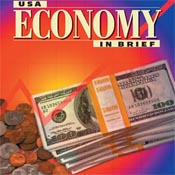Stealth stimulus? Lawmakers weigh options to boost recovery
 Washington - US lawmakers have begun considering another round of spending measures to shore up the economy as the country continues on a painstaking journey from recession to recovery.
Washington - US lawmakers have begun considering another round of spending measures to shore up the economy as the country continues on a painstaking journey from recession to recovery.
You might call it a second stimulus, but it is more like a rash of much smaller initiatives. Time magazine dubbed it a "stealth stimulus" this week, and the term has stuck.
Lawmakers are debating an extension of unemployment benefits beyond the end of 2009 and prolonging a tax credit for new home buyers that is set to expire on November 30.
A variety of other measures have also been proposed, mostly by left-leaning Democrats. Some are pushing for more infrastructure spending and relief for state government budgets. Others want a new jobs-creation tax credit for business and tax rebates to revive consumer spending.
President Barack Obama this week proposed boosting government loans to small businesses. He wants a 250-dollar payout for retirees, who will not get a cost-of-living increase in their pensions for the first year since 1975, because the recession drove down consumer prices.
But Obama is reluctant to endorse another robust public spending measure. Democrats are doing their best to play down the proposals after a bruising battle over the first stimulus - a 787-billion- dollar package approved in the depths of the recession in February.
"We do not have plans for an additional stimulus package. But we do have plans to stimulate the economy," said Nancy Pelosi, the Democratic speaker of the House of Representatives, after a meeting this week with sympathetic economists.
The White House has been picking and choosing between the various proposals on offer. The administration backs extending unemployment benefits, for example, but has yet to endorse tax credits for housing.
Most economists believe the US pulled out of recession some time over the summer, ending the country's longest contraction since the 1930s. The financial and housing sectors seem to be stabilizing, while the Dow Jones Industrial Average climbed above 10,000 last week for the first time in more than a year.
Critics argue that previous stimulus measures have done little to revive the economy, while the US government is already hopelessly in debt. The Treasury Department last week announced a record budget deficit of 1.42 trillion dollars - about 10 per cent of gross domestic product - for the fiscal year ending September 30.
"There are ways to get the economy moving again, allow American families and small businesses to keep more of what they earn, but the way to deal with it is to cut spending," said John Boehner, the top Republican legislator in the House.
Supporters of more government spending point to signs that the economy is still in dire straits. The United States may be on the road to recovery, but not nearly fast enough for most Americans.
Unemployment stands at 9.8 per cent, the highest rate in 28 years, and could well rise to 10 per cent next year. There is a growing disconnect between the rebounding profits of financial firms and the declining wages of average Americans.
"The possibility of the economy slipping back into recession next year are uncomfortably high," said Mark Zandy, chief economist of Moody's Economy. com, who attended Pelosi's roundtable. "It's very important for policymakers to remain aggressive and continue to do more." (dpa)